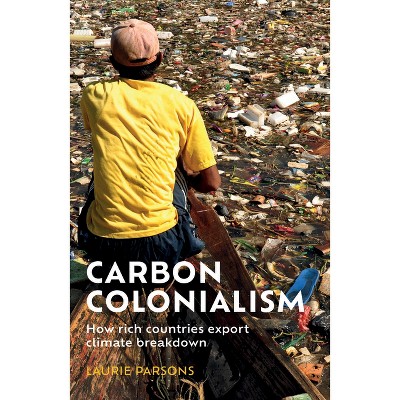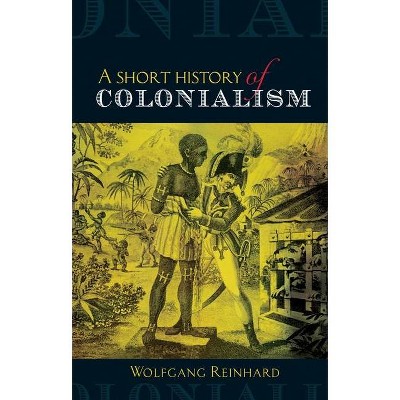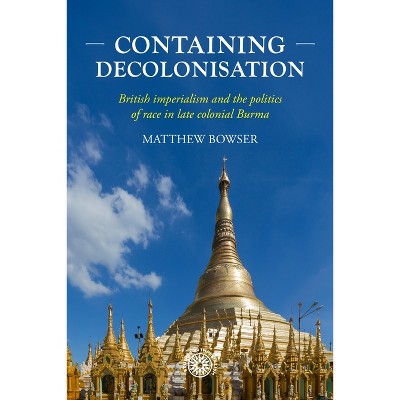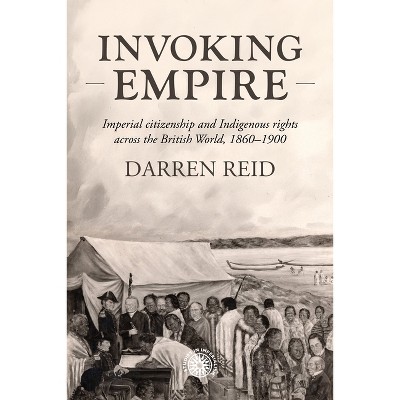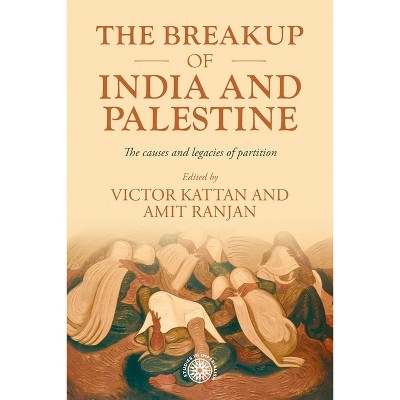Colonialism and Antarctica - by Peder Roberts & Alejandra Mancilla (Paperback)

About this item
Highlights
- This book explores how the concept of colonialism can help to understand the past and present of Antarctica, and how Antarctica may illuminate the limits of colonialism as an analytic concept.
- About the Author: Alejandra Mancilla is a Professor of Philosophy at the University of Oslo.
- 352 Pages
- Political Science, Colonialism & Post-Colonialism
Description
About the Book
This book explores how the concept of colonialism can help us to understand the past and present of Antarctica, and how in turn Antarctica may illuminate and rethink our understanding of colonialism.Book Synopsis
This book explores how the concept of colonialism can help to understand the past and present of Antarctica, and how Antarctica may illuminate the limits of colonialism as an analytic concept. Despite lacking an indigenous population, the continent has been shaped by many of the same political and economic forces that have defined the rest of the world - notwithstanding its unique governance arrangement, the Antarctic Treaty System. The book provides a fresh and timely set of contributions that critically explore different practices, attitudes and logics that suggest that colonialism may have been and may still be present in Antarctica, ranging from religion to material culture to the treatment of animals. The chapters also explore the connection between colonialism and cognate terms like capitalism, socialism, nationalism, and environmentalism.
An electronic edition of this book is freely available under a Creative Commons (CC BY-NC-ND) licence.From the Back Cover
Is Antarctica the only continent in the world where colonialism never left a footprint? The question is deceptively complex, because despite lacking an indigenous population, Antarctica has not existed in isolation from the economic and political structures of the modern world. Being labelled a continent for science and peace has never prevented it from being a space where the rivalries of the Cold War and the inequalities between the developed and the developing world play out.
Colonialism and Antarctica explores how the concept of colonialism can help us to understand the past and present of Antarctica, and how in turn Antarctica may illuminate and rethink our understanding of colonialism. Despite lacking an indigenous population, the continent has been shaped by many of the same political and economic forces that have defined the rest of the world - notwithstanding its unique governance arrangement, the Antarctic Treaty System.
The book asks what analytic value the concept of colonialism can hold to explain the past and present of Antarctica. It also explores how thinking about colonialism in Antarctica helps reveal the limits to the analytic value of colonialism as a concept more generally. Aiming both to define a particular field of inquiry and stimulate further debate, this multidisciplinary volume includes contributions from history, philosophy, archaeology, political geography, and political science. It foregrounds perspectives from outside the Anglophone world and invites reflection on how knowing Antarctica is connected to power and justice.
About the Author
Alejandra Mancilla is a Professor of Philosophy at the University of Oslo.
Peder Roberts is Associate Professor of Modern History at the University of Stavanger and a researcher in the Division of History of Science, Technology and Environment at KTH Royal Institute of Technology.





